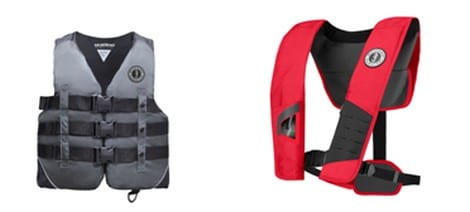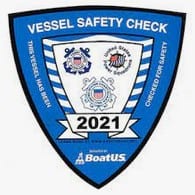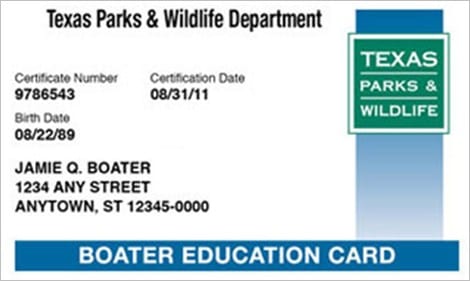 By Bob Currie, Recreational Boating Safety Specialist
By Bob Currie, Recreational Boating Safety Specialist
U. S. Coast Guard Auxiliary Base Galveston Flotilla
Safe Boating Week is from May 22-28, 2021. The purpose of the Safe Boating Campaign is to promote boater education and safe operation so that all boaters get home safely. Getting home safely from a recreational boating outing is simply a matter of following some important good practices. Some of the good practices are required by law, some are recommendations from the Coast Guard, and some just make good practice. Although this is not a complete list, it is a good start to operating safely on the water.
The Base Galveston Flotilla of the US Coast Guard Auxiliary operates out of the US Coast Guard base on Galveston Island. They aid the Coast Guard by providing maritime observation patrols in Galveston Bay; by providing recreational boating vessel safety checks; and by working alongside Coast Guard members in maritime accident investigation, small boat training, providing a safety zone, Aids to Navigation verification, cooking in base and station galleys and aboard cutters; and on the Coast Guard Drone Team.
Good Practices for Safe Boating
If you remember and follow these good practices for safe boating, you will have a pretty good chance of getting back home safely from a recreational boating outing:
- Life Jackets Save Lives – Wear a Life Jacket
- Safe Boats Save Lives – Obtain a Vessel Safety Check
- Knowledgeable Boaters Save Lives – Take a Boating Course
- Sober Boaters Save Lives – Never Boat Under the Influence
Wear a Life Jacket
Certain life jackets are designed to keep your head above water and help you remain in a position which permits proper breathing. To meet U.S. Coast Guard requirements, a boat must have a U.S. Coast Guard Approved life jacket for each person aboard. The important thing to remember about life jackets is you must be wearing them for them to work. Of deaths due to drowning in boating accidents, 91% of those who died were not wearing a life jacket. For Personal Watercraft riders, the life jacket MUST be worn. An impact rating is recommended, but not required. If you wear an impact vest, it must be Coast Guard approved. Texas law requires all children under 13 years of age in all vessels under 26 feet in length to wear a U.S. Coast Guard approved life jacket while underway. I am a big fan of the self-inflating life jackets, but in order for one to meet Coast Guard requirements, it must be worn when underway. You must be 16 years old in order to wear a self-inflating type of life jacket.

Obtain a Vessel Safety Check
The best way to ensure that you have the safety items you need is to undergo a free Coast Guard Vessel Safety Check (VSC), but even if you haven’t done this, you can take advantage of the safety check by adding the required and recommended safety items to your own list. You may also access the Coast Guard app and select the “Review Safety Equipment” icon. It is much better to have a Coast Guard Auxiliary Vessel Examiner perform a formal Vessel Safety Check with you. The Vessel Examiner will go over the items required by the Coast Guard, which include the following:
- Proper display of numbers
- Registration or documentation check
- Life jackets (one for each person on board, CG Approved)
- Visual distress signals (day and night, as required)
- Fire extinguishers
- Ventilation (inboard motors)
- Backfire flame control (inboard/outboard and inboard gas engines)
- Sound producing devices (whistle, horn, and bell if required)
- Navigation lights
- Pollution Placard (boats 26 feet and over)
- MARPOL Trash Placard (boats 26 feet and over)
- Marine Sanitation Device (required on boats with installed toilet)
- Navigation Rules (boats 39.4 feet and longer need current copy)
- State and Local Requirements must be met
- Overall vessel condition free of hazards
 The Vessel Examiner will then go over recommended and discussion items to allow the boater to further increase their safe boating experience. These items include the following:
The Vessel Examiner will then go over recommended and discussion items to allow the boater to further increase their safe boating experience. These items include the following:
- Marine Radio (one of my top recommendations)
- Dewatering Device and Backup (bilge pump and bailing bucket)
- Mounted Fire Extinguishers (not required, but recommended)
- Anchor and Line for the Area (not required, but another of my top picks)
- First Aid Kit and Person in Water Kit (ring buoy with a line, for example)
- Accident Reporting Overview
- Offshore Operations
- Survival Tips
- Fuel Management (one third out, one third back, and one third for reserve)
- Float Plan (another of my top items for discussion)
- Insurance Considerations
- Boating Checklist
- Safe Boating Classes (even if you have had one years ago, take a refresher)
- Maritime Domain Awareness (an effective understanding of anything associated with the sea that could impact the security, safety, economy, or environment)
If your boat passes all the required items, you will be given a Vessel Safety Check decal to display on the port side of your boat.
Take a Safe Boating Course
In 81% of the reported recreational boating deaths in 2018 (533 out of 658 deaths), the last year for which we have statistics, the victim had not taken a nationally-approved boater safety course. Texas has a mandatory education law for certain boaters born after August 31, 1993. This law requires boaters born after August 31, 1993, to complete a TPWD-approved course and be certified with the TPWD to operate:
- Any vessel over 15 horsepower
- Any windblown vessel over 14 feet
- All personal watercraft
A person less than 13 years of age may operate only if he or she is supervised by a person who:
- Is 18 years of age or older and …
- Can lawfully operate the watercraft and …
- Is on board when the vessel is underway.
Boaters who are required to have a Boater Education Card must carry the card on board the vessel and have it available for inspection by a law enforcement officer. Not carrying your Boater Education Card when one is required can result in a fine. Boaters who are not required to have a boater education course can benefit from taking one. BoatUS has an online course that is approved by all states.

Never Boat Under the Influence
Come on, now. This is a no-brainer. The boater safety course tells you that too. Operating a boat under the influence is against the law as well as being the leading contributing factor in boating deaths and injuries.
Summary
Safe Boating Week is from May 22-28, 2021. During Safe Boating Week the US Coast Guard Auxiliary reminds boaters to boat responsibly. You can help improve your chances for a safe boating experience by (1) always wearing a life jacket when underway, (2) obtaining a Vessel Safety Check, (3) taking a boater education course, and (3) never boating under the influence.
For more information on boating safety, please visit the Official Website of the U.S. Coast Guard’s Boating Safety Division at www.uscgboating.org. Questions about the US Coast Guard Auxiliary or our free Vessel Safety Check program may be directed to me at [email protected]. I am available to perform free Vessel Safety Checks, and I will come to your location to perform them. SAFE BOATING!
[March-29-2021]

 Posted in
Posted in 
























